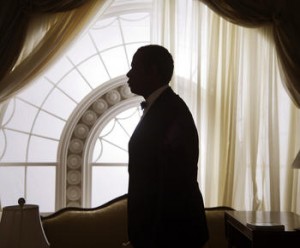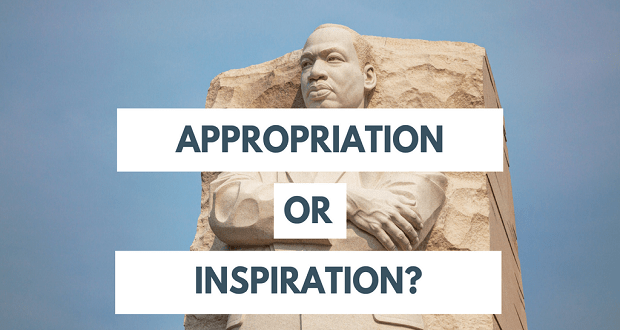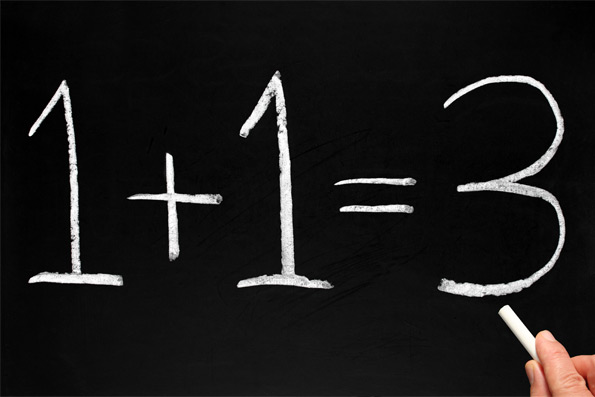 I would not consider myself a movie buff and I am clearly not qualified as a movie critic. However, I was so frustrated by The Washington Post’s review of “Lee Daniel’s The Butler”, which opened in movie theaters last Friday, that I feel compelled to provide, what I hope, will be a perspective from an African American woman who grew up in the Civil Rights era.
I would not consider myself a movie buff and I am clearly not qualified as a movie critic. However, I was so frustrated by The Washington Post’s review of “Lee Daniel’s The Butler”, which opened in movie theaters last Friday, that I feel compelled to provide, what I hope, will be a perspective from an African American woman who grew up in the Civil Rights era.
“The Butler”, a movie directed by Lee Daniels, chronicles the life of Cecil Gaines (portrayed by Forest Whitaker), a very competent and well liked White House Butler who served eight administrations from Eisenhower to Reagan, within the backdrop of key historical civil rights milestones starting with Brown vs. Board of Education (1954), The Civil Rights Act of 1964 and ending with the election of President Barak Obama. Gaines’s wife Gloria is played by entertainment icon Oprah Winfrey.
John Anderson, freelance film critic, wrote the review of “The Butler” for The Post. He gave the movie 2-stars (“ok”) out of 4. I had not seen “The Butler” when I read the review, but I was nonetheless disappointed. I have since seen the movie, which confirm my feelings about the review. John Anderson is a regular film critic for Variety, Newsday, New York Times, chaired the New York Film Critics Circle and is a member of the national Society of Film Critics. I want to give him his “due” and acknowledge that he possesses credentials that I absolutely do not.
However, I was annoyed because even before I saw the movie, which by the way I thought was outstanding, I could tell that Anderson missed the crucial point. Anderson critiques the movie as never settling on a point of view. “Is the subservience that makes Cecil a success as a butler something to be admired or decried?” he asks. His review goes on to say that Daniels “can’t resist the commercial impulse to make Cecil Gaines a hero. And you can’t have it both ways without making a movie with a personality disorder.”
That, John Anderson is exactly the point of the movie! As African Americans we often feel schizophrenic-like. We saw this same point made in the movie Crash, when Terrence Howard (who also has a role in “The Butler”), behaved in “subservient like ways” in an number of scenes, most notably when he was stopped by police who inappropriately touched his wife (Thandi Newton), and Howard stood by and did nothing. Was the Howard character to be admired or admonished? He thought that the ramifications of speaking up would have been worse than his silence. These are decisions that African Americans still have to make every day…Do you go along to get along or do you speak up and accept the potential consequences? In the case of Trayvon Martin, who was walking while Black, the consequences were fatal.
Notwithstanding over the top theatrics in some of the scenes, I thought Daniels did a great job of portraying the dichotomies that the Civil Rights Movement brought…are you for non-violence (Martin Luther King, Jr. approach) or are you the more radical supporting of the Black Panther Movement. One of Gaines’ son joined the Black Panther movement which caused him great consternation. The other son joined the army and was killed in Vietnam. When put in the context of an era of great change, I can understand Gaines’s feelings. He was not in a “slightly clueless daze” as Anderson contends, but rather in a conundrum of dealing with complexities and perplexities of the likes he had never seen.
Anderson seems to have wanted the Gaines character to show up totally in “Uncle Tom Like” fashion or as a radical like his one son. The duality and confusion that the character portrayed may be something that Anderson has never experienced. Perhaps he has not lived with a double consciousness, as W.E.B. Dubois called it. In his seminal work, The Souls of Black Folk (1903), Dubois says:
It is a peculiar sensation, this double-consciousness, this sense of always looking at one’s self through the eyes of others, of measuring one’s soul by the tape of a world that looks on in amused contempt and pity. One ever feels his two-ness,—an American, a Negro; two souls, two thoughts, two unreconciled strivings; two warring ideals in one dark body, whose dogged strength alone keeps it from being torn asunder.
I saw that “two-ness,” the “unreconciled striving,” and the “dogged strength” in the character of Cecil Gaines. The ability to stand by, “saying nothing and seeing nothing, being invisible”, (the most important requirement of the job, he was told) took incredible strength. In two different scenes he confronted the manager of the butlers, protesting the 40% wage disparity between the “Negro” and white staff, also showing incredible courage.
Anderson may have missed what he calls the movie’s “ever-meandering point” but I doubt that many African Americans missed it. And therein lies our continuing issue with diversity and inclusion in this country. There are still so many who just don’t get it…who really have never walked in the shoes of the Cecil Gaines’ of the world.



















Great article. I will see the movie tonight. Saw PBS Charlie Rose’s one-hour interview of the director, screenwriter, Oprah, and Forest and it was deep. And if you have recently read (or re-read for many of us) Uncle Tom’s Cabin, I encourage you to do so. Tom chose to stay with his oppressor while George chose to run. Worth reading again. It is an amazing book and, Mary-Frances, your comments reminded me of it.
Great article by a great woman! Great movie! I tweeted about it!
Fondly,
Santa
Here’s what I just posted on RB about The Butler. Highly recommend seeing The Butler. I saw it last night. There isn’t enough time and space for me to share how great I think this movie is. In artistic speak the word “layered” is often used to say that a work of art is complex, multifaceted, covers many topics, and so forth. Well, if you ever what to see something that’s layered, see The Butler. The screenwriter wraps civil rights history, family dynamics, coming of age, politics and political legacy, US culture over several decades, pain, suffering, humor, and hope into a story that is compelling to watch. And the talent of the director, screenwriter, actors, costume director, and others is superb.
Mary,
Excellent commentary! Was this piece a WSJ editorial submission? If not it should be…great teaching moment!
Mary Frances
I have not seen the movie, but you touch on what is much of the work … the minority within the majority (whether absolute numbers of people, or a power base) and how much balancing is necessary to fit, be successful, etc. while trying to be true to ones’ self and personal values.
Well said and written!